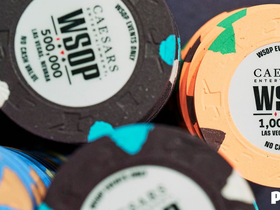Sweepstakes poker in California is all but dead. The state legislature has passed AB831, a bill that would make it a crime to operate or even support dual-currency sweepstakes gaming platforms. All that stands in the way is the Governor’s signature — or, for hopeful players, a last-minute veto.
If the law stands, sweepstakes poker sites will leave the state, and California’s 39 million residents will lose access to the only legal way to play online poker for real money prizes. The ban would take effect January 1, 2026, giving players a final window to cash out and enjoy the games while they last.
The bill, which passed the Assembly and Senate without a single “no” vote, targets all aspects of the sweepstakes ecosystem. Not only are operators on the hook, but payment processors, content suppliers, and even affiliates could face criminal charges for assisting these sites. This sweeping approach means the ban will be absolute: no more Sweeps Coins, no more cash redemptions, and no more online poker tournaments or ring games for California players.
Despite urgent protests, tribal opposition, and warnings about billions in lost economic value, the bill surged through the legislature. Now, all eyes are on Governor Gavin Newsom, who has until October 12 to veto the bill. If he does nothing or signs it, the ban is law.
The clock is ticking: What California poker players need to know
If you play on sites like Global Poker, Clubs Poker, Stake Poker, or ClubWPT Gold, nothing changes immediately. All major sweepstakes poker sites are still accepting California players — for now. The earliest any ban would take effect is January 1, 2026. That would give active players just over 2.5 months to cash out balances, finish tournament series, and enjoy the games.
Some operators have already started planning exits. High 5 Casino, a sweepstakes casino and game content provider, pulled out of California this month. Other major casino content providers like Playtech, Evolution, and Skywind have withdrawn their games, and Pragmatic Play has abandoned the entire US sweepstakes sector. Still, the poker sites themselves are waiting for the final word from the Governor.
If Newsom signs the bill or allows it to become law, expect a withdrawal by all sweepstakes poker rooms well ahead of the 2026 deadline. Operators typically give players a redemption window. For example, when ClubWPT Gold exited Connecticut and Louisiana, players had between two weeks and a month to claim prizes. The same approach is likely in California, ensuring you can redeem your Sweeps Coins or other prizes before the platforms shut down.
Key Dates for California Sweepstakes Poker Players
| Deadline/Event | Impact |
|---|---|
| Governor veto/signature deadline | October 12, 2025: If vetoed, sweeps poker survives. If signed or ignored, ban is certain. |
| Ban takes effect | January 1, 2026: All dual-currency sweepstakes poker sites must exit California. |
| Player withdrawal window | Expected: Autumn 2025 to December 2025. |
Why is California banning sweepstakes poker?
While many players enjoy sweepstakes poker for its legal, real-money prizes, the industry has always occupied a gray area. Under the dual-currency model, players buy Gold Coins for fun, but Sweeps Coins, given as a “free” bonus, can be used for poker and redeemed for cash. This model has been the backbone of leading sites like Clubs Poker and Global Poker, making California the largest sweepstakes poker market in the US.
However, tribal gaming interests and some lawmakers see this form of gaming as a threat to tribal exclusivity over gambling. They argue that because Sweeps Coins can be redeemed for cash, the distinction between social gaming and unlicensed gambling is artificial. Most tribes backed the bill, but some — including the Kletsel Dehe Wintun Nation, which partnered with Global Poker parent company VGW — protested, arguing that the ban will deepen economic inequality among tribes and close off vital revenue streams.
The Social Gaming Leadership Alliance (SGLA), an industry group, has argued that the ban will strip more than $1 billion in economic value from California, eliminate over a thousand jobs, and deprive the state of hundreds of millions in potential tax revenue. According to a recent study by Eilers & Krejcik Gaming, California accounts for $2.4 billion of the national $14.3 billion sweepstakes market — nearly one-fifth of the total. The study projects an $800 million direct economic loss and another $200 million in lost potential tax revenue if the market were regulated instead of banned.
Is there any hope for a veto?
Governor Newsom’s position is not clear. While he has vetoed nearly 20% of bills on his desk in recent years — often citing budget concerns — this bill passed with such overwhelming support that a veto is seen as a long shot. Still, the SGLA and dissenting tribes are making a last-ditch push, arguing that a ban will hurt smaller tribes and cost the state dearly.
If Newsom allows the bill to pass, California will join New Jersey, Connecticut, and Montana in enacting explicit bans on sweepstakes gaming. Nevada’s ban goes into effect on October 1, and New York has a ban awaiting the Governor’s signature.
When the ban takes effect, all sweepstakes poker sites will be forced to exit the California market. Players will not be able to redeem Sweeps Coins for cash or play for real prizes.
Free-play poker sites, such as PlayWSOP and Zynga Poker, will still be available, but these offer no real-money prizes.
Legal, regulated california online poker is still years away, with no current bills close to passage. Until lawmakers and tribal stakeholders can agree on a framework, California players will be left with only live cardrooms, home games, free-play apps and offshore, unregulated real money poker sites.







